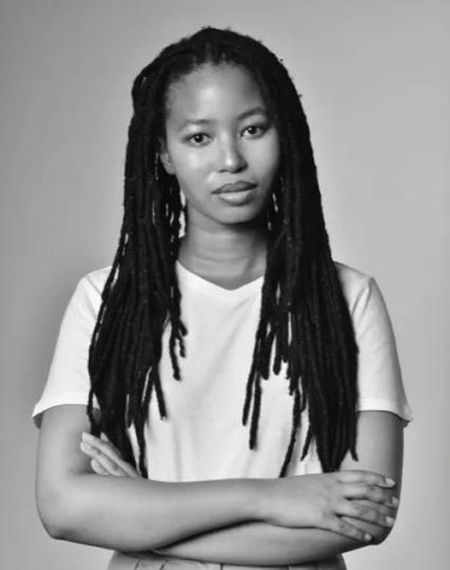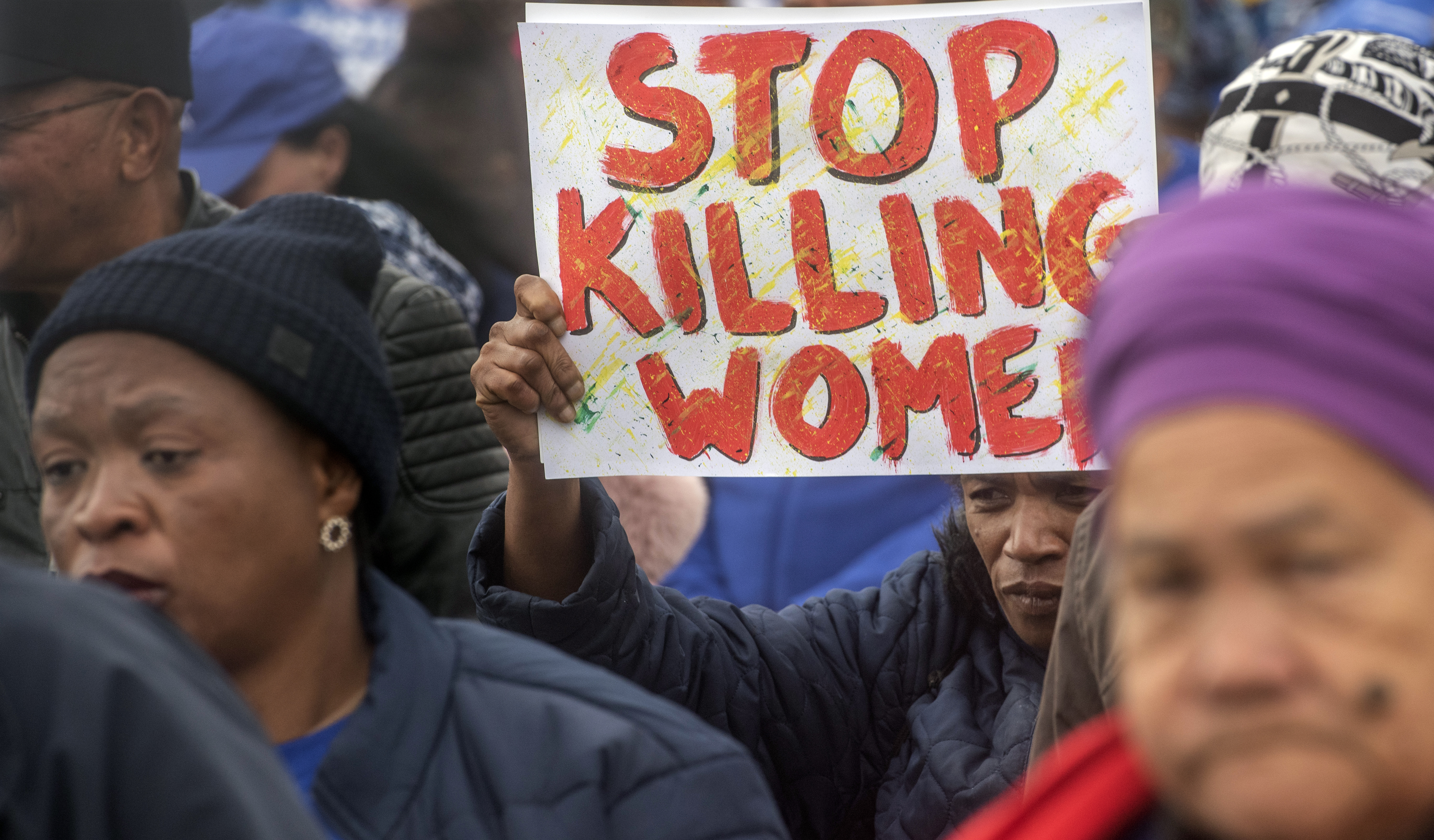Over the past week, much of South African social media has turned purple to raise awareness for gender-based violence and femicide (GBVF) ahead of the G20 Women’s Shutdown organised by the non-profit organisation Women for Change.
The organisation has called for women in SA to withdraw from the economy on Friday, 21 November by staying away from work and not spending money, and to wear black and participate in lie-ins across the country.
More than one million people have signed a petition by the organisation calling for gender-based violence to be declared a State of Disaster. Included in the petition are demands for the National Registry of Sex Offenders to be made public, harsher sentencing for those convicted of femicide, gang rape and child sexual violence, and comprehensive gender-based violence education programmes to be implemented in schools.
The organisers have asked women to stay away from work and avoid spending money on Friday to raise awareness around GBV. Men, and women who cannot stay away from work have been asked to show support by wearing black. In addition, at 12pm there will be a 15-minute silent lie-in at 15 designated points nationwide in honour of the women murdered each day.
The organisers have linked the protest to the G20 Summit, which will be held in Johannesburg on 22-23 November.
/file/dailymaverick/wp-content/uploads/2025/11/ED_584960.jpg)
“We refuse to allow South Africa to present itself as a ‘stable, growing economy’ while women’s bodies are the battlefield beneath it. The G20 Women’s Shutdown is a direct message to the world that you cannot speak of progress while women are dying,” said Women for Change.
Read more: Empowering communities – strategies to break the cycle of violence against women and children
The organisation’s demands are being backed by Wise4Afrika, an advocacy organisation dedicated to combating gender-based violence, which has provided technical support to Women for Change.
Wise4Afrika’s co-founder, advocate Brenda Madumise-Pajibo, said South Africa’s criminal justice system did not act as a powerful enough deterrent against committing gender-based violence and had been abused to delay proceedings.
“For quite some time, people have been using the law through their lawyers to delay proceedings — endless delays and postponements. And it’s a tactic. So it’s incumbent upon law and people who are charged with the responsibility of creating the law, the Parliament, to close those kinds of loops.”
She said declaring GBV a National State of Disaster would allow for resources and a streamlined, coordinated approach dedicated to addressing GBV.
“Truth be told, how we are responding to violence, especially violence against women in the country, is very fragmented and disparate. Once you declare a disaster, within those six months, it’s a concentration of efforts, interventions and responses that are targeted with resources,” she said.
Show of solidarity
Social media users across platforms like X, TikTok and Instagram have changed their profile pictures to purple to raise awareness. The movement has garnered international attention, with social media users from Botswana, Kenya and the United Kingdom expressing solidarity.
Businesses, too, have pledged solidarity, including the advocacy organisation Crtve Development, which is shutting down its operations on Friday.
“Being a female-owned organisation, with a predominantly women-led team, the issues at the heart of this shutdown mirror the urgency driving the work we do,” said Crtve Development’s CEO and founder, Dr Okito Wedi.
“After all, we are mothers, parents raising daughters, and women forging careers in a country where it is often unsafe to simply exist. Shutting down our operations is our way of standing together, in solidarity with all women across South Africa, and in commitment to the future we are working so hard to build.”
How to participate in the G20 Women’s Shutdown
- Sign the Women for Change petition for GBVF to be declared a National Disaster;
- Turn your profile pictures purple on your social media channels and share posts about the protest;
- If you are a woman, take Friday off from work or school and avoid buying goods and services;
- Wear black on Friday in solidarity with those protesting; and
- Participate in a local lie-in scheduled to begin at 12pm.
Lie-in areas
Women for Change has confirmed that the following sites will host coordinated silent lie-ins for 15 minutes, beginning at 12pm. Participants are encouraged to meet at the sites at 11.30am to ensure the lie-ins begin on time.
- Sea Point Promenade, Cape Town;
- Rooiplein, Stellenbosch University;
- Botanical Gardens, Randburg;
- Constitution Hill, Johannesburg;
- Aula Lawn, University of Pretoria;
- Union Buildings Lawn, Pretoria;
- North Beach, Durban;
- South Beach, Durban;
- Eastern Beach, East London;
- Summerstrand Beach, Gqeberha;
- Sol Plaatje University, Kimberley;
- Potch Park at the Bult Area, North West University, Potchefstroom;
- Sports Ground, University of Limpopo;
- Hoffman Square (Main Campus), University of Free State, Bloemfontein; and
- Riverside Government Boulevard, Nelspruit.
Over a third of SA women experience physical or sexual violence
According to the SA Police Service’s annual report of crime figures, in 2023/24 there was a 1.84% increase in the murder of women and a 10.22% increase in the murder of children compared to the previous year. In the same year, 42,946 rape cases were reported to the police.
A nationally representative 2022 study by UN Women found that more than a third of South African women (35.5%) reported experiencing sexual or physical violence, and 23.9% reported experiencing physical or sexual violence at the hands of an intimate partner.
/file/dailymaverick/wp-content/uploads/2025/11/Screenshot-2025-11-18-at-22.50.24.png)
A petition to have GBVF declared a National Disaster was submitted to Parliament in April. However, on 11 November, Women for Change posted that the petition had been rejected on the grounds that there was already a National Strategic Plan (NSP) on Gender-Based Violence and Femicide, which was introduced by the Presidency in 2020.
The plan was introduced in response to widespread anti-GBV protests that erupted in 2019 in response to the rape and murder of first-year UCT student Uyinene Mrwetyana, who was assaulted in a post office by post office worker and convicted rapist Luyanda Botha. The plan set clear strategic outcomes for six pillars: accountability, prevention, justice, response, economic empowerment and research.
/file/dailymaverick/wp-content/uploads/2025/09/9149779.jpg)
But a mid-term review of the NSP conducted by the Commission on Gender Equality and published in February found that despite progress in some “soft target” initiatives like plans for income generation for survivors, delays in establishing the National Council on Gender-Based Violence and Femicide had “significantly hindered” the state’s efforts to enhance measures against GBVF.
Read more: Alarming findings of GBV study — will government finally address the crisis of violence?
Women for Change slammed the petition’s failure, arguing that the NSP was insufficient. It said there was a lack of transparency in how the NSP had been implemented and how the funds allocated had been used.
“Five years after President Ramaphosa promised R21-billion to fight GBVF, there are no public reports, no transparency and no accountability — while 5,578 women were murdered in one year. This is not a functioning system. This is a national crisis,” said the organisation.
Previously, Minister of Justice and Constitutional Development Mmamoloko Kubayi announced a plan to publicise the National Registry of Sex Offenders, but had to shelve it because of data privacy laws.
Questions over demands
While there has been widespread support online for the national shutdown, there are also questions over the effectiveness of its demands, including making the National Registry of Sex Offenders public.
“The register only reflects people who have been convicted of certain crimes; the conviction rates for sexual offences are extremely small — that means the majority of perpetrators and predators are not on the register,” said Dr Nechama Brodie, the author of Femicide in South Africa.
“I also believe that even convicted offenders have a right to privacy — and if you don’t believe the offenders do, then perhaps think of their families, who are not criminals but who will be judged as if they are.”
/file/dailymaverick/wp-content/uploads/MC-Femicide-Karin.jpg)
In its 2022 study, UN Women recommends a number of measures to reduce GBVF. These include strengthening and enforcing existing anti-GBVF laws, improving access to mental health services for survivors and children who witness GBVF, and community-level interventions to challenge existing harmful gender norms and attitudes. DM





 Women for Change has asked women to stay away from work and avoid spending money on Friday to raise awareness around GBV. (Photo: Brenton Geach / Gallo Images)
Women for Change has asked women to stay away from work and avoid spending money on Friday to raise awareness around GBV. (Photo: Brenton Geach / Gallo Images)